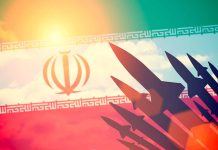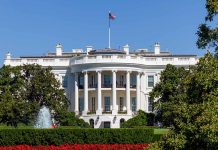
A Biden-Harris initiative to examine LGBTQ+ perspectives in nuclear policy sparks national debate, challenging traditional paradigms in national security.
At a Glance
- Biden administration explores integrating LGBTQ+ viewpoints into nuclear security discussions
- Critics label the initiative as wasteful, while supporters argue for diverse perspectives
- The debate raises questions about traditional approaches to national security
- Initiative aims to foster more inclusive and holistic approaches to security threats
Biden Administration’s LGBTQ+ Nuclear Policy Initiative
The Biden-Harris administration has launched a controversial initiative to explore LGBTQ+ perspectives in nuclear policy, sparking a nationwide debate. This move aims to challenge traditional paradigms in the historically rigid and technical sphere of nuclear security. While the administration views this as a step towards more inclusive policymaking, critics have labeled it as a “queering nuclear weapons” program, questioning its relevance and necessity.
The initiative comes as part of a broader push by the Biden administration to integrate diverse viewpoints across various policy areas. Supporters argue that including LGBTQ+ perspectives could lead to more comprehensive and nuanced approaches to national and global security challenges. However, detractors view it as a misallocation of resources and a distraction from core nuclear security issues.
Debate Over Inclusivity in National Security
The controversy surrounding this initiative highlights a growing tension between traditional approaches to national security and calls for greater diversity and inclusion. Advocates argue that bringing in perspectives from historically marginalized groups could uncover blind spots in current policy and lead to more effective strategies. Critics, however, contend that nuclear policy should remain focused on technical and strategic considerations rather than social issues.
Broader Context of Biden’s LGBTQ+ Policy
The nuclear policy initiative is part of a larger effort by the Biden administration to advance LGBTQ+ rights and inclusion across various sectors of government and society. This approach has been met with both support and resistance, reflecting the broader cultural and political divisions in the country.
While the administration has taken steps to protect LGBTQ+ rights, including in areas like education and healthcare, the extension of this approach to national security matters has proven particularly controversial. Critics argue that it represents an overreach of identity politics into critical areas of governance, while supporters see it as a necessary step towards truly inclusive policymaking.
Implications for Future Policy Decisions
The outcome of this debate could have far-reaching implications for how national security policies are developed and implemented. If successful, the initiative could pave the way for more diverse voices to be included in high-level security discussions. However, if met with continued resistance, it may lead to a reevaluation of how identity-based perspectives are incorporated into traditionally technical fields.
As the debate continues, it remains to be seen how this initiative will impact nuclear policy and broader national security strategies. What is clear is that it has sparked a significant conversation about the role of diversity and inclusion in areas of governance that have long been dominated by traditional perspectives.
What do you think of this controversy? Until this debate appeared, we wouldn’t have thought inclusion would have anything to do with nuclear policy or engineering. Send us an email and let us know what you think!







